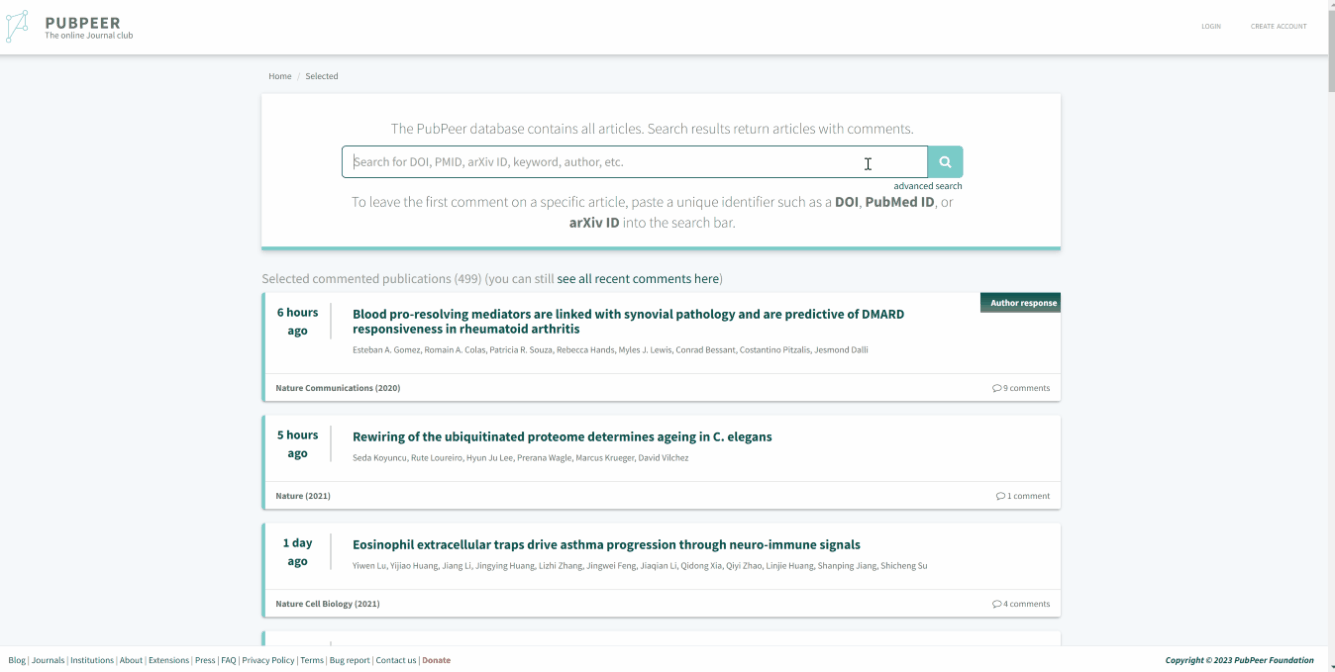| ⬅ Back to Tool Repository |

| Talk | YouTube |
Suggested Exercise
(~10 minutes)
Introduction
Let’s try navigating to the PubPeer website and taking a look at what the platform can do for us. The first thing you’ll see when you visit the platform is an input box allowing you to search for any academic publication you may want to discuss. For this demo, try and search for the paper “Is the Power Threshold of 0.8 Applicable to Surgical Science?” — its DOI is 10.1016/j.jss.2019.03.062.
Once you’ve found the paper’s discussion, take a look at what information is available to you. Look at some of the commenters names and try to look some of them up: Andrew Gelman, Samantha Seals, Thom Baguley — while some are anonymous, most are identifiable experts in their fields, and the comments they’ve made substantively address (and in this case, challenge) the paper in question. (What do you suppose the use of a resource like this could be?)
A Note on the Perils
Let’s now take a look at another example. This time, look up the comments on the paper “Rewiring of the ubiquitinated proteome determines ageing in C. elegans”, DOI 10.1038/s41586-021-03781-z. This time there’s only one comment by one anonymous user. (Can we trust this comment?)
It’s not difficult to imagine a scenario in which a PubPeer thread might be problematic. If a comment is made anonymously and cites no source, we must judge it on the merits of its content — which requires time and expertise that not all readers may have. This is an important thing to keep in mind, and it’s important to keep it in mind as you use and contribute to PubPeer.
Extending PubPeer
PubPeer has a browser extension that will create convenient pop-ups on pages that feature papers with comments on PubPeer. This can be helpful when reading papers or perusing journals as it may alert you to issues you may otherwise overlook.
Helpful Links
– 5 tips for using PubPeer to investigate scientific research errors and misconduct
– Classification and analysis of PubPeer comments: How a web journal club is used
– PubPeer FAQ
| Website | PubPeer.com |
| Author(s) | The PubPeer Foundation. |


